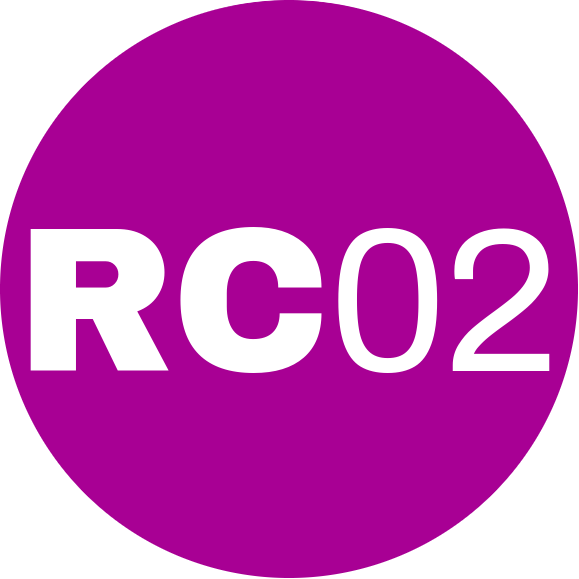The Koreans have been existentially collectivist due to their subjection, as an irreducible ethnic nation, to Japan’s racist capitalist colonialism, America’ neo-colonialist military occupation, a total civil war between the two Koreas, nationalist development and modernization, etc. All these drastic, often internationally driven, collective experiences have engendered an ethos of survivalist collectivism. Citizenship, the supposedly quintessential sociopolitical basis of liberal modernity, has existed in South Korea along with such collectivist conditions of survival and prosperity. Thereby arose a highly unique citizenship regime as analyzed in my book in 2022, Transformative Citizenship in South Korea: Politics of Transformative Contributory Rights (Palgrave Macmillan).
In its institutional form, the Republic of Korea – launched in 1948 after the political model of the United States – was one of the most advanced democratic polities at that time. Postcolonial Korea simply could not look back to its precolonial polity and was advised, or forced, to instantly study and adopt the American systems of politics as well as economy and education. Under an on-paper liberal polity, the state was legally justified in respect to its contractually reciprocal relationship with all individual citizens. At least in law, each citizen was duly positioned to reciprocate with the state through fully democratic citizenship rights and duties. However, ‘free’ democracy implied every citizen’s collective duty of rejecting communism and all its associated ideas, policies, institutions, groups, and persons (sometimes including friends, families, and relatives). During many years under military dictatorship, in practice, communism was often identified as any acts or thoughts that oppose the military-led anticommunist state. Citizens could claim their citizenship rights, including very basic civic freedom, only if they obeyed the dictatorial, and proudly nationalist, military state. At the same time, the same state successfully orchestrated a sort of nationalist industrialization in which capitalism was defined as a collective national venture and each citizen was exhorted to participate virtually as a national political duty (namely, developmental citizenship).
Nothing seemed to be fundamentally changing even after the military’s retreat from politics. South Koreans have rarely asserted themselves as individual(ist) claimers of sovereign socioeconomic rights, if any. Ironically, when the national financial crisis broke out in 1997-1998, they were collectivistically summoned again by the then proudly democratic state leadership (under Kim Dae-Jung) to sacrifice their jobs and even help to “collect gold” (changeable into foreign currencies) for “saving the national economy first”. In fact, it was the clumsy mimicry of the Park Chung-Hee-style developmental drive by the previous government that had only subjected the nation to predatory global finance, causing the national financial meltdown. Subsequently, the two politically liberal, albeit socioeconomically neoliberal, administrations, under Kim Dae-Jung and Roh Moo-Hyun respectively, did attempt to acknowledge and promote some of individual citizens’ irreducible citizenship rights, but fell short of establishing a solid social policy state.
Does South Korea’s above sociopolitical trajectory imply that its people’s citizenship has always been an empty shell? Despite such sociopolitical intransigence, the country has undergone quite stunning levels and spans of modern civilizational and developmental transformations which I have elsewhere explained as compressed modernity (see The Logic of Compressed Modernity, 2022, Polity). South Korean life since liberation from Japan has been replete with dramatic institutional, developmental, sociopolitical, and ethnonational transitions in which every each South Korean’s citizenship status has dramatically formed and changed in conjunction with the state’s – and sometimes civil society’s – collective transformative purposes. That is, a distinct regime of citizenship embedded in transformative collectivism has evolved out of South Korea’s compressed modernity.
Under compressed modernity, ceaseless and abrupt societal transformations have dictated South Koreans to confront not only many difficulties inherent in such changes but, more critically, the troubles ensuing from the crude institutional conditions for managing them. While both the state and civil society were immature and unstable with their own survival remaining in question, the domestic conditions and international environments required them to embark on rapid institutional and techno-scientific modernization and aggressive economic development. In fact, such transformations were often pursued in order to strategically trounce the sociopolitical dilemmas stemming from the inchoate, dependent, and even illegitimate nature of the state machinery and dominant social order. There have arisen the transformation-oriented state, society, and citizenry to which each transformation becomes an ultimate purpose in itself, the processes and means of the transformations constitute the main sociopolitical order, and the transformation-embedded interests form the core social identity. Relatedly, a distinct mode of citizenship has been engendered in terms of transformative contributory rights. Citizenship as transformative contributory rights can be defined as effective and/or legitimate claims to national and social resources, opportunities, and/or respects that accrue to each citizen’s contributions to the nation’s or society’s collective transformative purposes.
The book, Transformative Citizenship in South Korea, purports to show that, as South Korea has been aggressively and precipitously engaged in institutional and techno-scientific modernization, economic development, political democratization, economic and sociocultural globalization, and, mostly recently, ethnonational reformation, its citizens have been exhorted or have exhorted themselves to intensely engage in each of these transformations, and their citizenship, constituted by identities, duties, and rights, have been very much framed and substantiated by the conditions, processes, and outcomes of such collective transformative engagements. Transformative contributory rights, or transformative citizenship, constitute a citizenship regime of compressed development and modernization in South Korea, and basically across the entire postcolonial world. It reflects an instrumentalist sociopolitical order of South Korea, and many other postcolonial nations, under compressed modernity, and requires a systematic amendment of the hitherto dominant Marshallian theory of democratic citizenship evolution.
Chang Kyung-Sup, SNU Distinguished Professor, Sociology Department, Seoul Nation University (changks@snu.ac.kr)

